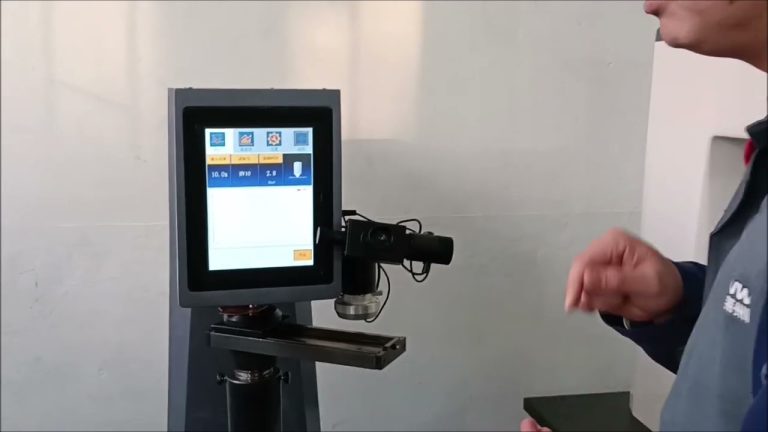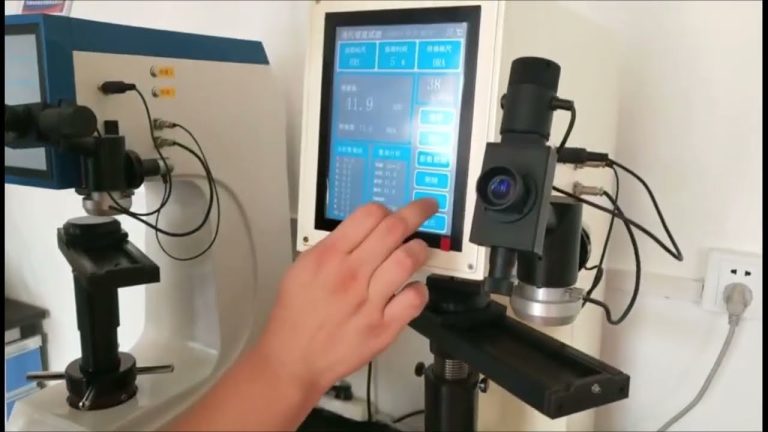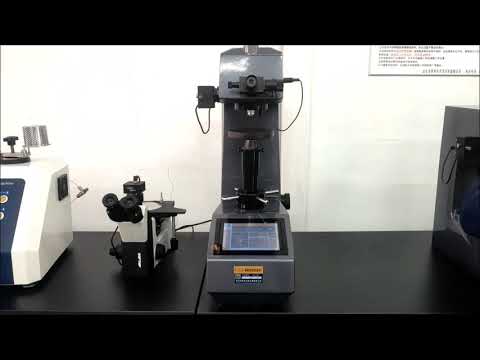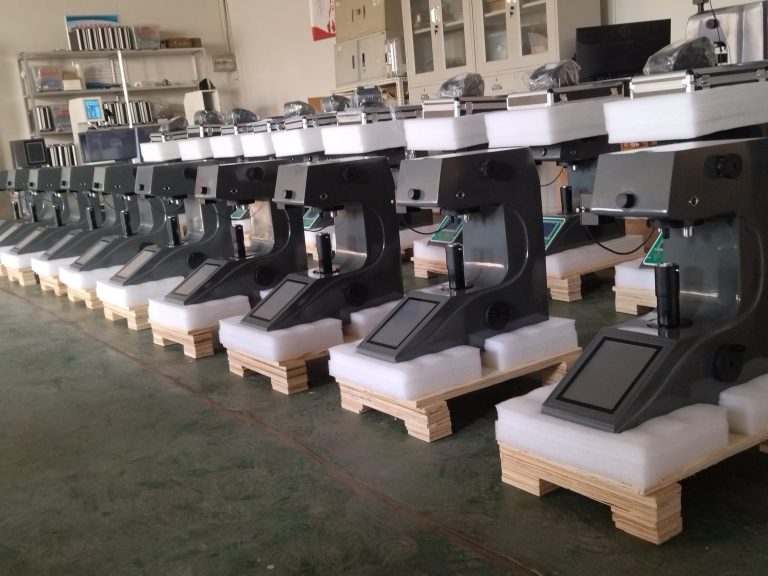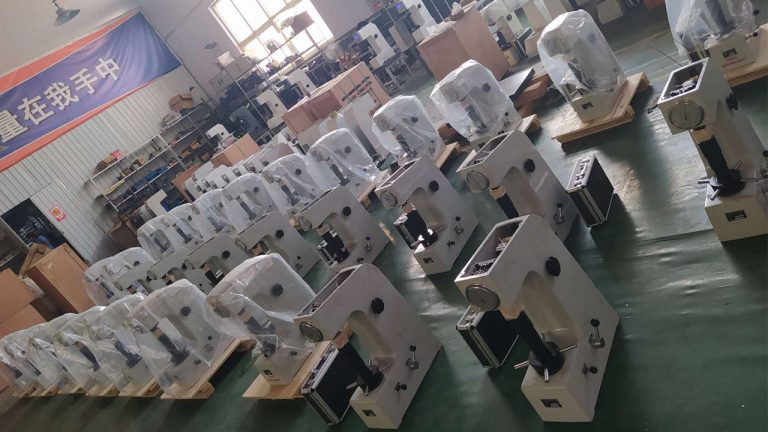Table of Contents
Benefits of Using hardness testers for Steel in Manufacturing Processes
Hardness testers are essential tools in the manufacturing industry, especially when it comes to working with steel. Steel is a versatile material that is used in a wide range of applications, from construction to automotive manufacturing. Ensuring that the steel used in these applications meets the required hardness standards is crucial for the quality and durability of the final product. This is where hardness testers come into play.
One of the main benefits of using hardness testers for steel in manufacturing processes is the ability to accurately measure the hardness of the material. Hardness is a key property of steel that determines its strength, wear resistance, and ability to withstand external forces. By using a hardness tester, manufacturers can ensure that the steel they are using meets the required hardness specifications, thus guaranteeing the quality and performance of the final product.
Another benefit of using hardness testers for steel is the ability to identify any inconsistencies or defects in the material. Steel is often subjected to various processes during manufacturing, such as heat treatment and machining, which can affect its hardness. By using a hardness tester, manufacturers can quickly identify any areas of the steel that do not meet the required hardness standards, allowing them to take corrective action before the material is used in production.
In addition to measuring hardness and identifying defects, hardness testers can also help manufacturers optimize their manufacturing processes. By regularly testing the hardness of the steel at different stages of production, manufacturers can identify any trends or patterns that may indicate issues with their processes. This information can then be used to make adjustments to the manufacturing process, ensuring that the steel produced meets the required hardness standards consistently.
When it comes to choosing a hardness tester for steel, Chinese high-quality companies are known for their reliable and accurate testing equipment. These companies use advanced technology and high-quality materials to produce hardness testers that are durable, precise, and easy to use. By investing in a hardness tester from a Chinese high-quality company, manufacturers can be confident in the accuracy and reliability of their hardness testing results.
Furthermore, hardness testers from Chinese high-quality companies often come with additional features and capabilities that can further enhance the testing process. For example, some hardness testers are equipped with software that allows for data analysis and reporting, making it easier for manufacturers to track and monitor the hardness of their steel over time. Additionally, some hardness testers are designed to be portable, allowing for on-site testing in various manufacturing environments.
In conclusion, hardness testers are essential tools for manufacturers working with steel. By accurately measuring hardness, identifying defects, and optimizing manufacturing processes, hardness testers can help ensure the quality and performance of the final product. When choosing a hardness tester for steel, manufacturers should consider investing in a high-quality product from a reputable Chinese company to ensure accurate and reliable testing results.
How to Choose the Right Hardness Tester for Steel in a Chinese High-Quality Company
When it comes to testing the hardness of steel, choosing the right hardness tester is crucial. In a Chinese high-quality company, where precision and accuracy are paramount, selecting the appropriate hardness tester can make a significant difference in the quality of the products produced. With a wide range of options available in the market, it can be overwhelming to determine which hardness tester is best suited for your specific needs. In this article, we will discuss some key factors to consider when choosing a hardness tester for steel in a Chinese high-quality company.
One of the first things to consider when selecting a hardness tester is the type of steel being tested. Different types of steel have varying hardness levels, and not all hardness testers are suitable for all types of steel. It is essential to choose a hardness tester that is compatible with the specific type of steel being tested to ensure accurate and reliable results.
Another important factor to consider is the testing method used by the hardness tester. There are several different testing methods available, including Rockwell, Brinell, and Vickers. Each method has its advantages and disadvantages, and the choice of testing method will depend on the specific requirements of the company. For example, if high precision is required, the Vickers method may be more suitable, while the Rockwell method is commonly used for quick and easy testing.
In addition to the type of steel and testing method, it is also essential to consider the accuracy and precision of the hardness tester. In a Chinese high-quality company, where precision is critical, choosing a hardness tester with high accuracy and repeatability is essential. Look for hardness testers that have been calibrated and certified to ensure reliable and consistent results.
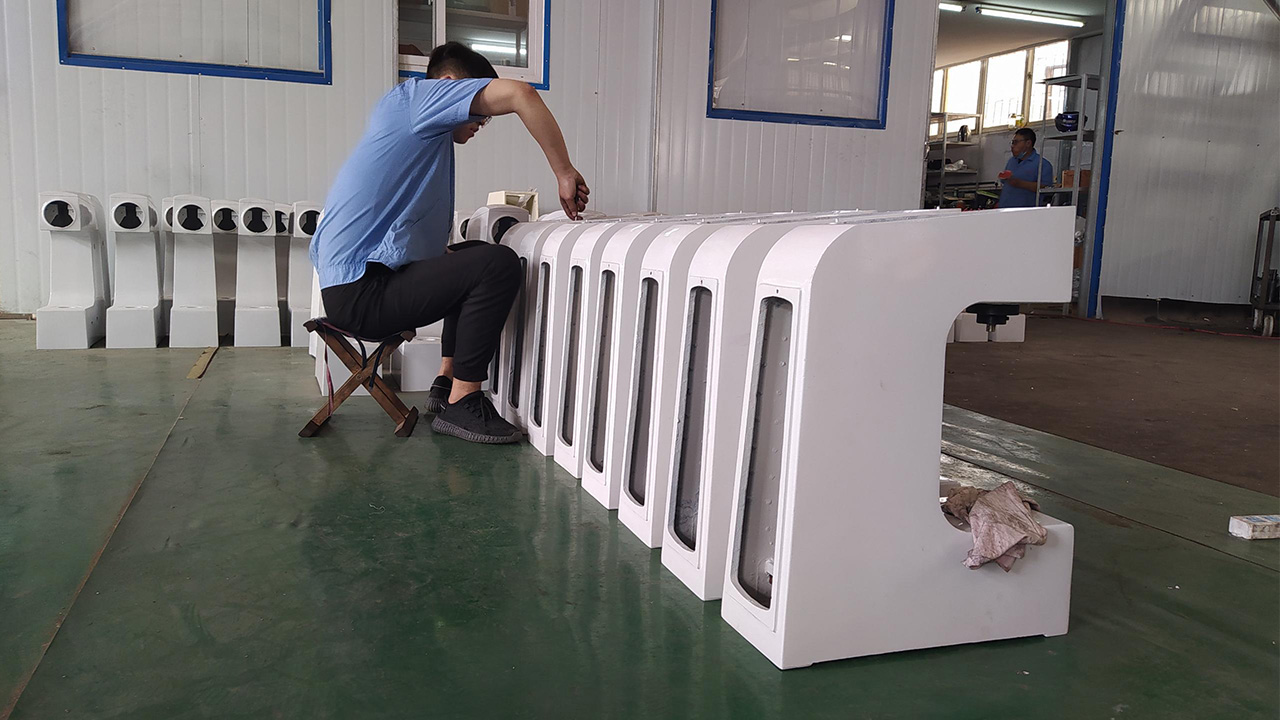
Durability and reliability are also crucial factors to consider when choosing a hardness tester for steel in a Chinese high-quality company. The hardness tester should be able to withstand the rigors of daily use in a manufacturing environment and provide reliable results over an extended period. Look for hardness testers made from high-quality materials that are built to last and require minimal maintenance.
Ease of use and user-friendly features are also important considerations when selecting a hardness tester. In a busy manufacturing environment, time is of the essence, and a hardness tester that is easy to operate and provides quick results can help streamline the testing process. Look for hardness testers with intuitive interfaces and features such as automatic data logging and analysis to simplify the testing process.
Finally, consider the after-sales support and service provided by the manufacturer when choosing a hardness tester for steel in a Chinese high-quality company. A reputable manufacturer should offer comprehensive technical support, training, and calibration services to ensure that the hardness tester continues to perform optimally over time.
In conclusion, choosing the right hardness tester for steel in a Chinese high-quality company is essential for ensuring the quality and reliability of the products produced. Consider factors such as the type of steel being tested, testing method, accuracy, durability, ease of use, and after-sales support when selecting a hardness tester. By taking these factors into account, you can choose a hardness tester that meets the specific needs of your company and helps maintain the high standards of quality and precision expected in a Chinese high-quality company.

